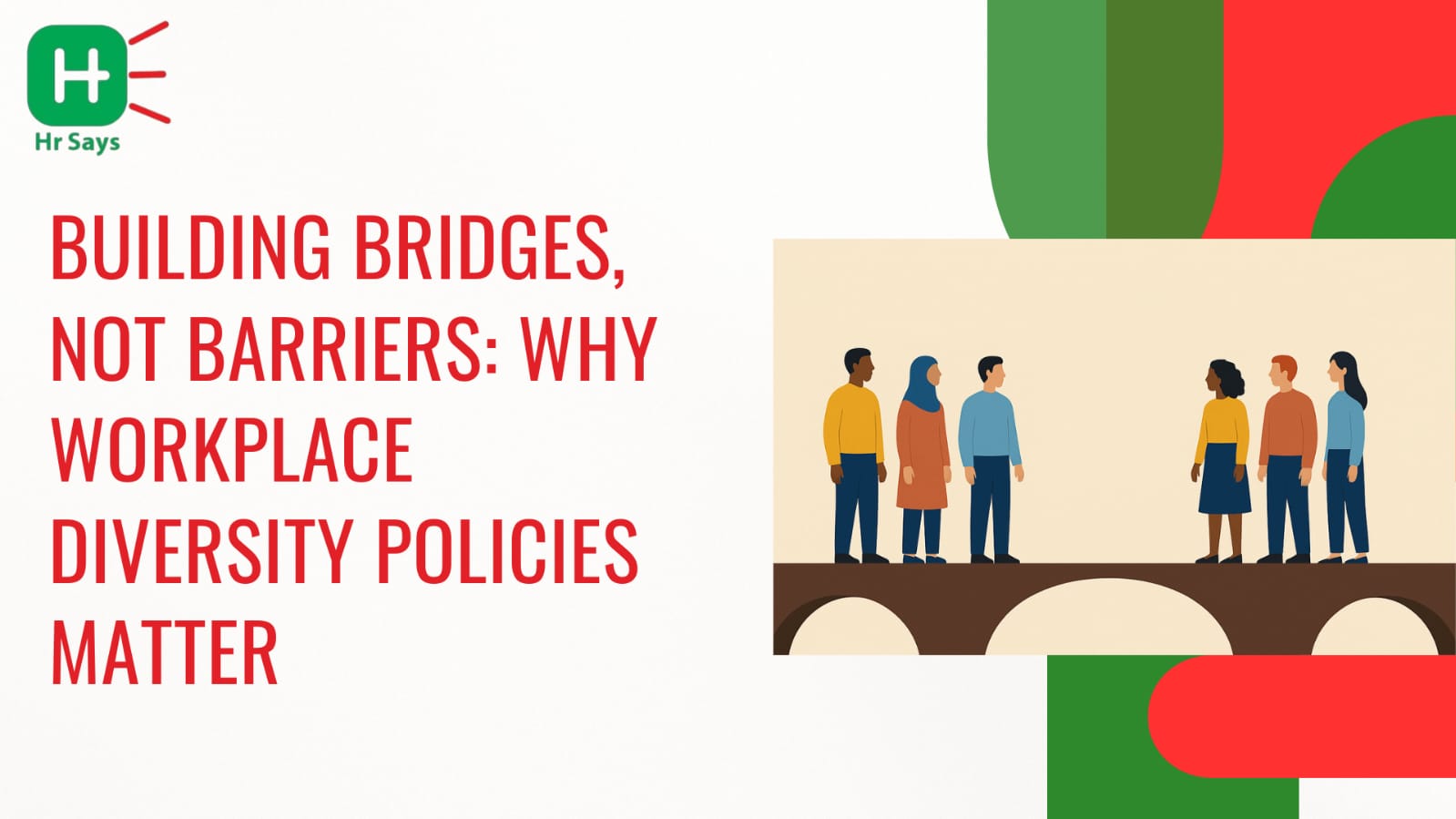What is the real meaning of an inclusive workplace? It is not only about employment of diversified personnel but also making them feel heard, felt, and respected. Diversity policies in the workplace are silent but effective, in creating equal opportunity and more formidable teams.
Understanding Workplace Diversity Policies
One of the guidelines that are developed to provide fair services and treatment is diversity policies. They motivate organisations to employ and invest in workers of other cultures, sex, ethnicity and point of view. Such policies are not number-oriented policies. They concern establishing the balance and representation.
Why Do They Matter?
Every policy has a purpose, and diversity policies bring certain benefits to the surface. When applied well, they reshape company culture and build stronger collaboration.
● Broader perspectives in decision-making
● Improved employee engagement and morale
● Stronger adaptability to global markets
● Reduced workplace conflicts through inclusivity
Such policies do not just check a box. They influence long-term growth.
The Role in Organizational Culture
A workplace without diversity policies can often feel one-sided. Employees may sense bias, even unintentionally. Policies create boundaries that guide respectful behavior and fair practices. They become the foundation of a safe and supportive environment.
Creating Belonging
When policies encourage inclusivity, employees feel like they belong. They become more likely to share ideas, participate in projects, and take ownership of outcomes. That sense of belonging cannot be built overnight. It grows through consistent practices.
Challenges in Implementation
It is not always easy to put diversity into action. Policies on paper may look promising but fall short in practice. Common hurdles include:
● Resistance to change from existing teams
● Lack of awareness about unconscious bias
● Insufficient training for managers
● Overlooking minority voices in leadership
Recognizing these challenges is the first step toward addressing them.
Building a Better Future with Diversity
Organizations that prioritize diversity do not only strengthen their reputation. They prepare for the future. Workplaces are changing. Employees expect fairness. Customers expect representation. A well-built policy shows commitment, not convenience.
Conclusion
Workplace diversity policies are more than written guidelines. They act as silent protectors of fairness, respect, and opportunity. When companies uphold them sincerely, they create work environments where collaboration thrives and individuality is respected.

 Workplace diversity policies ensure fairness, inclusion, and representation across organizations. They shape culture, boost engagement, and encourage growth while addressing challenges like bias and resistance. Strong policies prepare workplaces for a balanced and inclusive future.
Workplace diversity policies ensure fairness, inclusion, and representation across organizations. They shape culture, boost engagement, and encourage growth while addressing challenges like bias and resistance. Strong policies prepare workplaces for a balanced and inclusive future.








.jpeg)
.jpeg)

.jpeg)





.jpeg)



.jpeg)

.jpeg)



